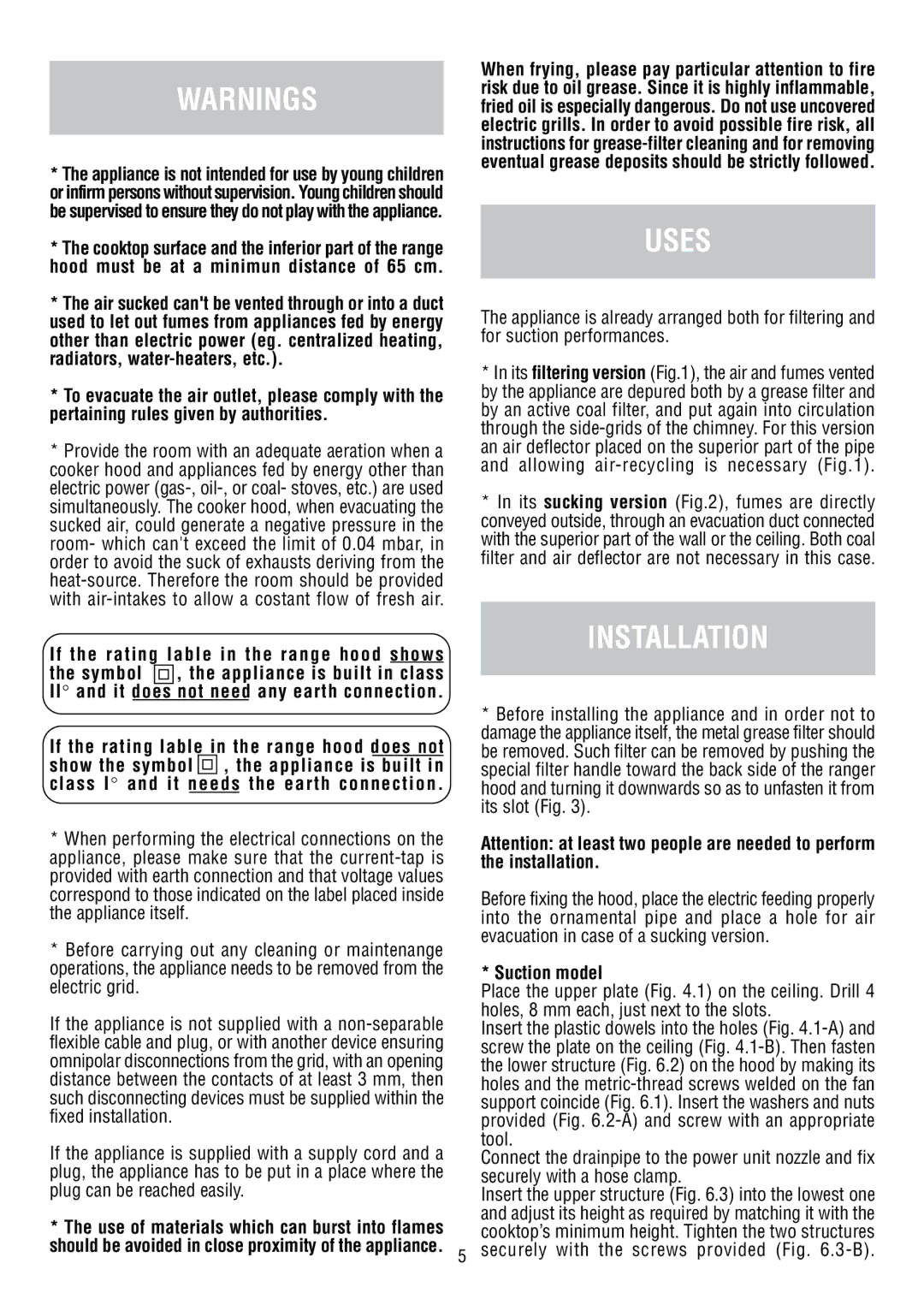
WARNINGS
*The appliance is not intended for use by young children or infirm persons without supervision. Young children should be supervised to ensure they do not play with the appliance.
*The cooktop surface and the inferior part of the range hood must be at a minimun distance of 65 cm.
When frying, please pay particular attention to fire risk due to oil grease. Since it is highly inflammable, fried oil is especially dangerous. Do not use uncovered electric grills. In order to avoid possible fire risk, all instructions for
USES
*The air sucked can't be vented through or into a duct used to let out fumes from appliances fed by energy other than electric power (eg. centralized heating, radiators,
*To evacuate the air outlet, please comply with the pertaining rules given by authorities.
*Provide the room with an adequate aeration when a cooker hood and appliances fed by energy other than electric power
If the rating lable in the range hood shows
the symbol ![]() , the appliance is built in class II° and it does not need any earth connection.
, the appliance is built in class II° and it does not need any earth connection.
If the rating lable in the range hood does not show the symbol ![]() , the appliance is built in class I° and it needs the earth connection.
, the appliance is built in class I° and it needs the earth connection.
The appliance is already arranged both for filtering and for suction performances.
*In its filtering version (Fig.1), the air and fumes vented by the appliance are depured both by a grease filter and by an active coal filter, and put again into circulation through the
*In its sucking version (Fig.2), fumes are directly conveyed outside, through an evacuation duct connected with the superior part of the wall or the ceiling. Both coal filter and air deflector are not necessary in this case.
INSTALLATION
*Before installing the appliance and in order not to damage the appliance itself, the metal grease filter should be removed. Such filter can be removed by pushing the special filter handle toward the back side of the ranger hood and turning it downwards so as to unfasten it from its slot (Fig. 3).
*When performing the electrical connections on the appliance, please make sure that the
*Before carrying out any cleaning or maintenange operations, the appliance needs to be removed from the electric grid.
If the appliance is not supplied with a
If the appliance is supplied with a supply cord and a plug, the appliance has to be put in a place where the plug can be reached easily.
*The use of materials which can burst into flames should be avoided in close proximity of the appliance.
Attention: at least two people are needed to perform the installation.
Before fixing the hood, place the electric feeding properly into the ornamental pipe and place a hole for air evacuation in case of a sucking version.
* Suction model
Place the upper plate (Fig. 4.1) on the ceiling. Drill 4 holes, 8 mm each, just next to the slots.
Insert the plastic dowels into the holes (Fig.
Connect the drainpipe to the power unit nozzle and fix securely with a hose clamp.
Insert the upper structure (Fig. 6.3) into the lowest one and adjust its height as required by matching it with the cooktop’s minimum height. Tighten the two structures
